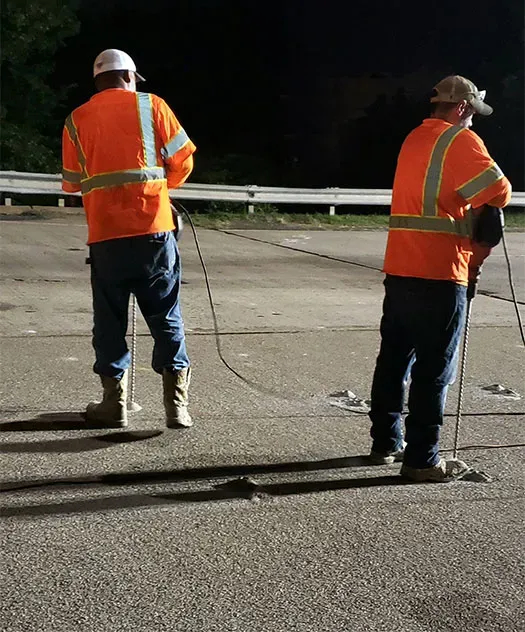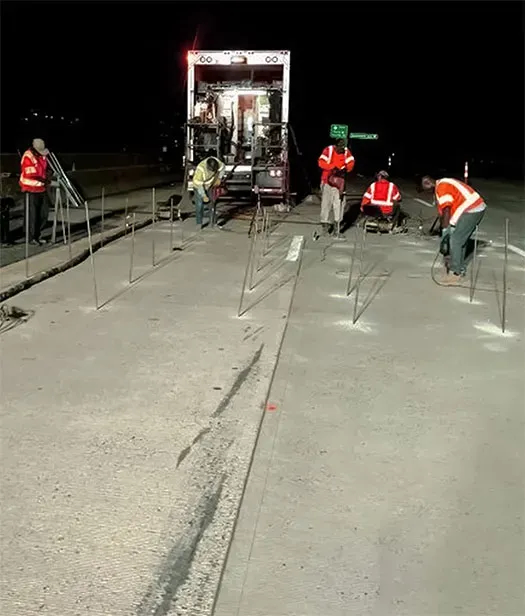Multiple Bridge Repair Project in Charlotte, North Carolina
Problem
In Charlotte, North Carolina, NCDOT officials were embarking on a major rehabilitation project for I-277, the auxiliary interstate highway that serves as a partial beltway surrounding the city center. NCDOT identified 15 bridges on I-277 that showed signs of settled roadway approach slabs. In each case, the bridge approach slabs required lifting to grade, subbase soil stabilization, and void filling to discourage future settlement. With a need for a fast, reliable, and experienced contractor that had the crews and materials to complete the job on time, NCDOT and its prime contractor contacted URETEK.
Analysis
For each bridge, URETEK Deep Injection® (UDI) was proposed to stabilize the soils and lift the approach slabs back to their designed grade. A separate injection plan was formulated for each approach comprised of estimated injection elevations and the amount of lift needed. When the URETEK crew arrived to perform the repair, they utilized Dynamic Cone Penetrometer (DCP) testing to confirm the plan or make appropriate changes.
Solution
UDI, applied according to a site-specific injection plan, was successful in restoring each of the identified settled bridge approach and departure slabs to their originally designed grade. Additionally, the soils beneath each bridge slab were stabilized and all identified voids were filled to mitigate against future settlement.
Result
Following UDI, NCDOT was able to check-off all the settled I-277 bridge approach and departure slabs from the long list of tasks associated with its major restoration project. NCDOT and its prime contractor were both pleased with the results, and all work was completed on time, without any significant traffic delays. At each bridge work location, the project was worked at night, and there was always one lane open for traffic. Charlotte residents were able to keep moving even as their local bridge approaches were being repaired and made stable, safe, and smooth for years to come.
URETEK Deep Injection® (UDI)
Widely referenced throughout our industry, UDI involves the injection of structural polymer into base and subgrade soils to increase the load bearing capacity. This is achieved by injecting the polymer through small holes drilled directly through the pavement structure to depths determined by site-specific analysis. Our URETEK 486 Star® material flows easily into voids and weak zones within the soil mass below. Through a controlled chemical reaction, the expanding polymer compacts surrounding soils and applies a controlled pressure on targeted areas of the affected pavement above. If needed, a multi-injection design plan is utilized to gently return the pavement to its original grade. The composite material quickly cures into a strong, dimensionally stable, and water-resistant geo-material, providing years of reliable service.
URETEK 486 Star®
URETEK 486 Star® polymer is a two-component, high-density, expanding thermoset polyurethane system. It was developed to be the ideal solution for under-sealing, void filling, lifting of settled pavement, stabilization and stiffening of weak soils, and for encapsulating and sealing buried infrastructure. URETEK 486 Star® is environmentally inert, non-toxic, and resists underground water erosion or weakening due to its industry-leading hydrophobic properties.


